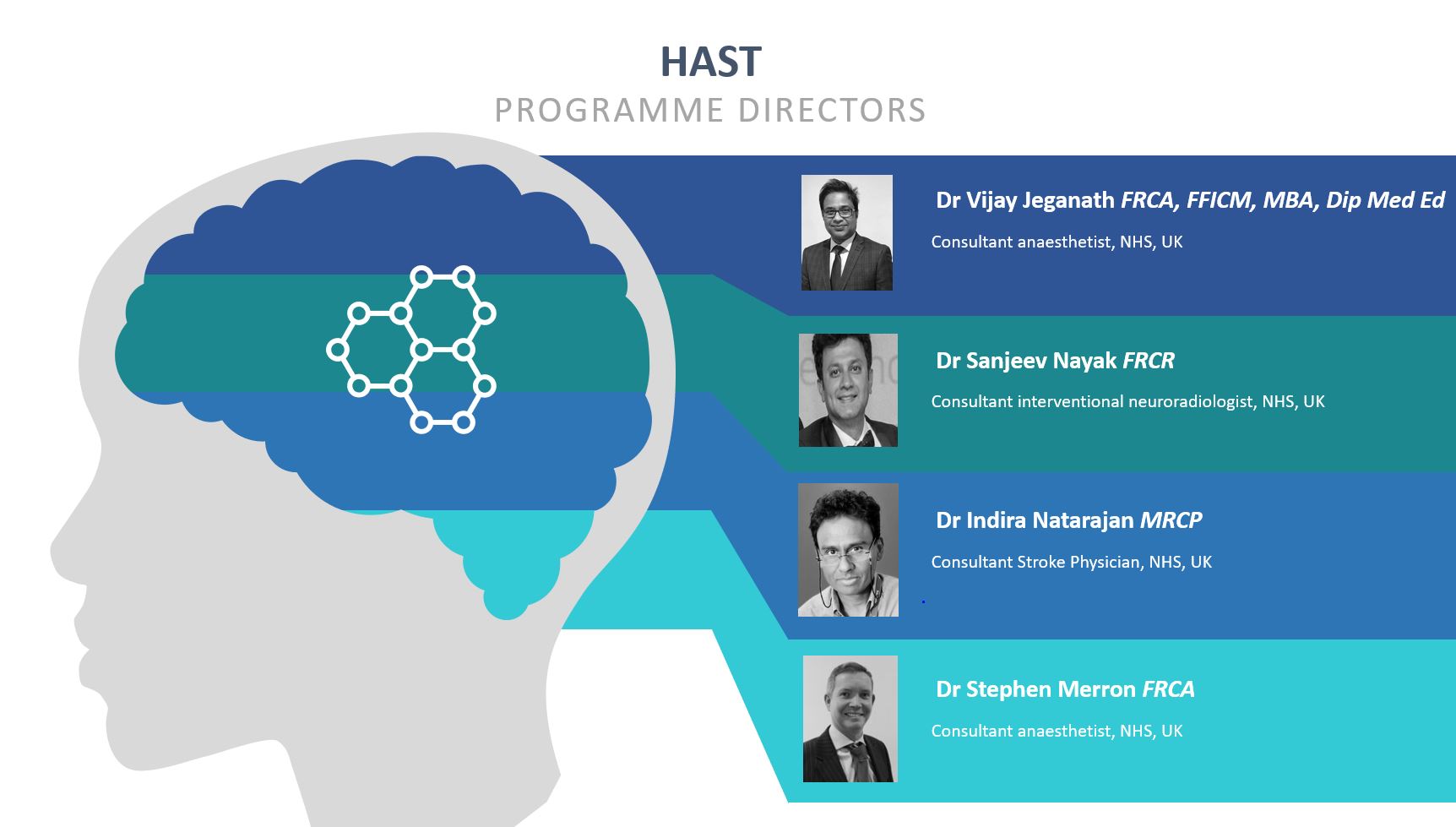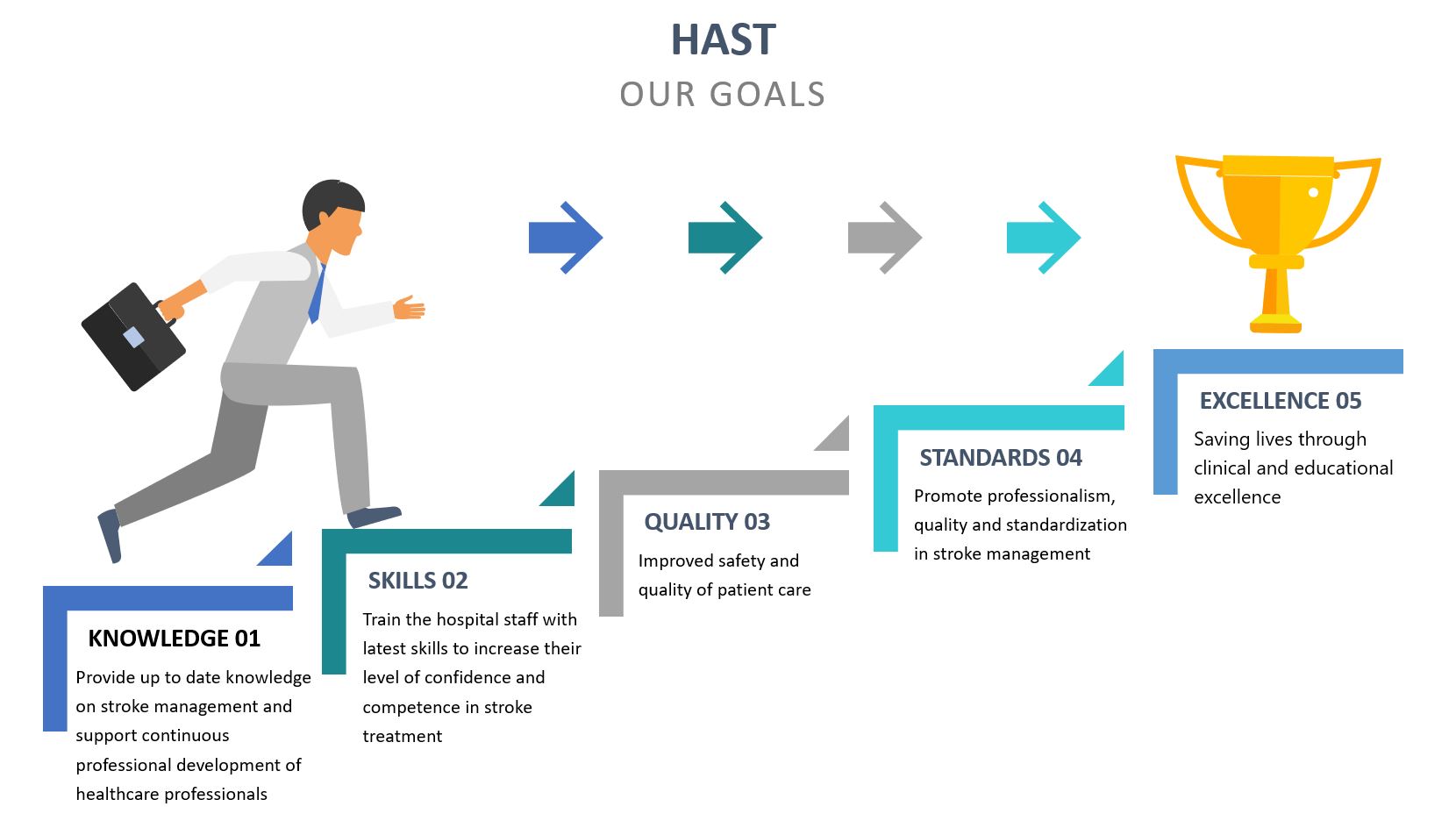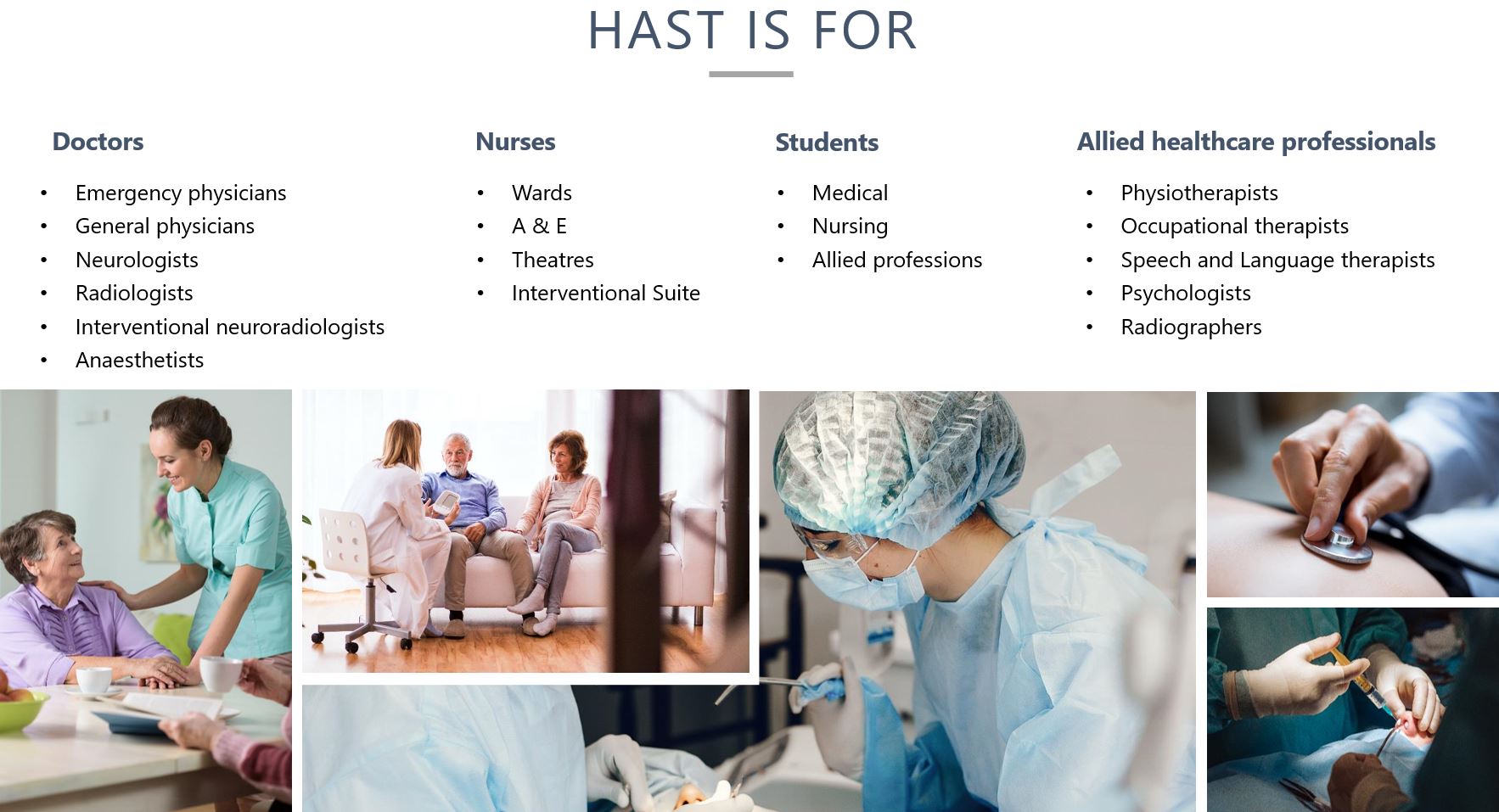The Programme
Stroke is a major cause of death and disability producing significant economic burden to society and families. Around 5.5 million people die of cerebrovascular disease worldwide, nearly half due to ischaemic stroke and the other half due to haemorrhagic stroke. In the USA, it is estimated that someone suffers a stroke every 40 sec and someone dies every 4 minutes as a result of stroke. Global stroke statistics show that India is among the countries with highest prevalence (145 per 100,000 population) and fatality (42%).
Approximately two million brain neurons die every minute in untreated stroke. So, Time is Brain. Early action is essential for reduced morbidity and mortality after stroke. Studies have emphasized the critical need for immediate thrombolysis and interventional thrombectomy to increase the numbers of treatment and improve the survival rates.
Healthcare systems around the world are continuously trying to make improvements in assessment, diagnosis and treatment of stroke patients. However, evidence suggests that quality improvement in stroke care is hindered by inadequate awareness, poor communication, lack of protocols, delayed assessment and suboptimal skill-mix. Simulation training and hands-on practical workshops guide the hospital staffs to learn and practice clinical and non-technical skills in a safe environment. High fidelity simulation promotes critical thinking and decision-making skills. Furthermore, e-learning is becoming increasingly popular to allow the staff members to build their theoretical knowledge in their own pace with minimal disruption to hospital service. Effective educational programmes equip the doctors, nurses and allied professionals to work together and manage patients safely and efficiently. Bearing this in mind, a team of professional experts in the UK have

Programme Directors

Our Goals

Who can attend the course


